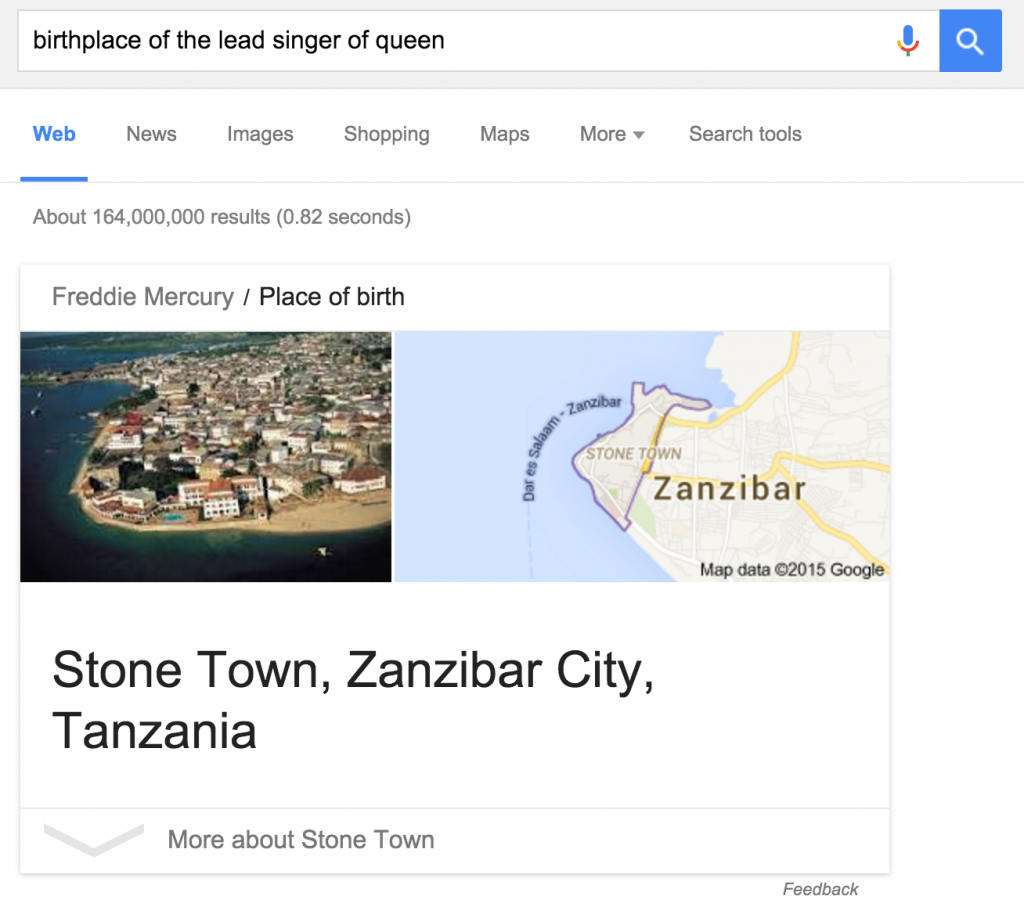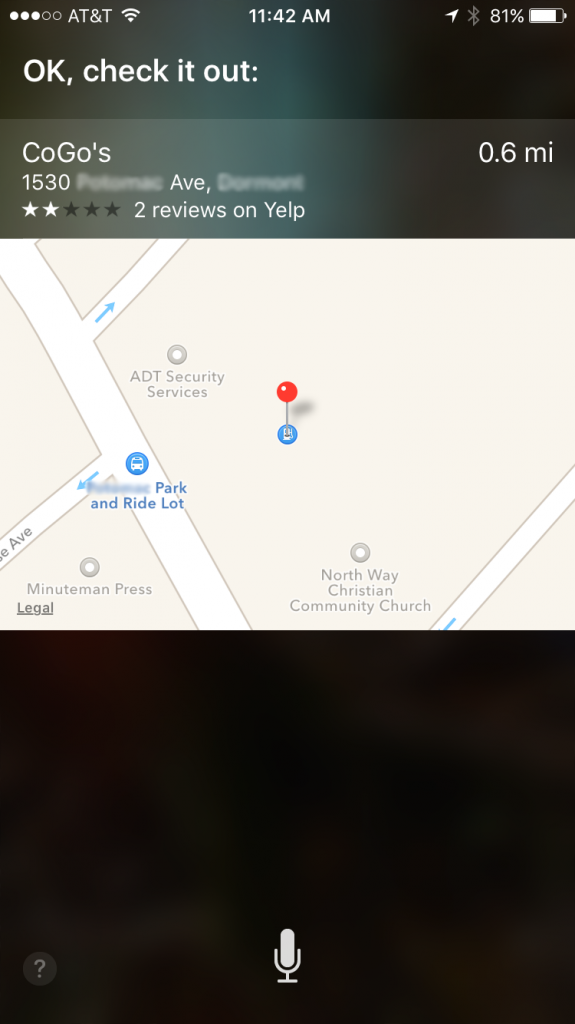The Rise of Voice Assisted Mobile Search
Big changes to the way people search the web have already started becoming a mainstream part of our daily lives. Most smartphones and devices come standard with voice search capabilities. We search the web the way we talk to our friends – by typing out long, sometimes complicated phrases in the form of a question, instead of translating our thoughts into shorter, searchable queries. (For example, “What’s it called when kids take those paper dolls to different places,” instead of “children’s traveling paper doll.”) (The answer is Flat Stanley, if you were wondering.)
For SEO professionals and business owners with an online presence, these changes go beyond the fairly routine concerns we experience in relation to algorithm changes. Google isn’t just changing its algorithm – technology itself is shifting, which means the ways in which we approach web-based marketing must shift with it.
New Ways to Bridge the Gap Between Human Language and Computer Language
Instead of having to tailor our thoughts in a way that computers can understand them, computers are now nearly able to bridge that gap themselves. There are several recent examples of machines being able to filter out the inflections and fillers that are present in our colloquial language and interpret what we are truly asking for (and in under seconds, at that).
What is RankBrain?
RankBrain is an artificial intelligence program that is responsible for 15% of all search queries, according to Google.[²] It began rolling out at the beginning of November. The really interesting (and either exciting or scary, depending on your perspective) element of RankBrain is that it’s an example of Machine Learning. Rather than having a human “teach” the computer how to understand colloquial language, it observes patterns and teaches itself.
The method RankBrain uses to interpret searches, as we understand it now, is essentially an extension of Google’s Knowledge Graph. When Google initially launched Knowledge Graph in May of 2012, they described it as a way of interpreting searches more so than a ranking factor:
We’ve been working on an intelligent model – in geek-speak, a ‘graph’ – that understands real-world entities and their relationships to one another: things, not strings. (Google Official Blog)

With RankBrain, however, Google takes things a step further. Google can create its own entities from a series of modifiers – instead of me directly asking Google for a “traveling paper doll,” I can ask it for “a paper doll that goes to different places,” and Google will show me the same results. At this point, it’s hard to separate exactly where the Knowledge Graph ends and where RankBrain begins; however, regardless of their labels, these trends are indicative of the way search is moving. SEO has always been so focused on keywords and search queries – if RankBrain means that we can’t even pin those down, how can we ensure our sites are ranking?
RankBrain as a Ranking Signal
It’s interesting that Google directly refers to RankBrain as a “ranking signal,” given that all of the information we have about the program makes it seem more like a way of interpreting searches than an actual performance factor. A “ranking signal” as we know it is something concrete that we can give Google to show that our site deserves to be shown first – a link, a series of words, a technique of some sort.
So far, what we know from Google about RankBrain is as follows:
- It is part of (not a replacement for) Hummingbird (the name of Google’s algorithm).
- It is the third most-important ranking factor out of hundreds. (Google will not confirm what the first two most-important ranking factors are, though we can say with some degree of confidence that they have to do with Content and Links).
RankBrain as the confirmed third most-important signal that tells Google to rank a webpage puts it above local signals, social signals, and other elements in terms of importance. And local and social signals have recently been stressed as being hugely important by various reputable sources, including Google.
The Influence of Voice Search

When I use my phone to ask Siri to search for something, however, I’m usually not looking for a complex and varied array of information – I’m looking for a quick and simple answer. If I ask her, “Where is the nearest gas station?” I’m not interested in a list of nearby gas stations, their prices, whether or not they have convenience stores attached, etc. I’m interested in directions to the nearest gas station.
More and more, the definition of the “best” results for a search often means the “quickest and simplest” results. Your page might list every gas station in the tri-state area and be by far the most informative page about gas stations that exists. But it’s not what I’m looking for in my search, and search engines know that. In fact, not only do Google and these associated voice search programs know that I want simple and quick answers, but they are also able to anticipate what I want to do with the information by giving me directions to the gas station.
What Do New Ways of Searching Mean for SEO?
If SEO is taking on a life of its own beyond matching keywords with search queries, how can we as marketers and business owners stay on top of this evolving technology?
The Push Towards Microdata
Google’s emphasis on Microdata and scraping information from the surface of the web to display right inside your search results is not without a downside – the simplification of search results means that complex, long-tail queries have a harder time fitting in. When you search complex terms, you generally receive “only a few relevant results and not necessarily highly relevant ones. The result is much more a kitchen sink of possibilities than a set of direct answers.”[¹] This is what RankBrain tries to solve.
Staying fully optimized with Microdata may not be the only way to keep up with the changes, but it will certainly help.
The Most Information in the Quickest, Simplest Way Possible

The push towards Microdata and simplicity sort of hints at the trends we can expect from Google in the coming years. Yes, it’s true that looking for new ways to present information is important, but in this case “new” should also mean “simpler” and “clearer.”
Changing the Way We Think About Traditional Optimization
For the vast majority of websites, long blocks of text with careful optimization for a single exact-match keyword are no longer the way to get Google’s attention. Instead, be concise and clear, and use your keyword in a variety of forms across your site. We can’t count on exact-match keyword phrases anymore, or in some cases, even broad-match. What we can do is create information resources that are practical, useful, and easy to read and navigate.
That’s not to say that keyword optimization will stop being important for SEO, because to some degree, I think it will always be something we need to worry about. But during the past couple of years, Google has moved significantly away from rewarding traditional optimization methods and significantly towards rewarding simplicity and usefulness, and that trend is only going to continue as this technology continues to evolve.
Sources:
1. How RankBrain Changes Entity Search – Search Engine Land
2. RankBrain: The Artificial Intelligence that Google Now Uses to Process Search Results – Digital 360



